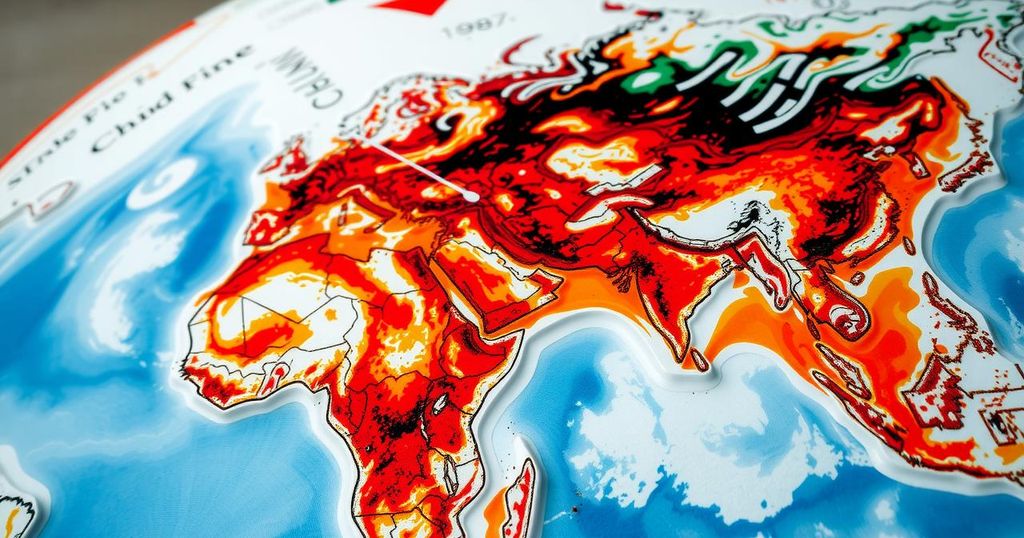2024 is projected to be the hottest year on record, surpassing the critical temperature threshold of 1.5°C. Extreme weather events have intensified globally, resulting from human-caused climate change. While nations claim to pursue net-zero emissions, carbon dioxide levels continue to rise. A UN deal of $300 billion aims to address the issues, but critics consider it inadequate. Political denial of climate change complicates responses, necessitating urgent global action to mitigate these challenges.
The reality of climate change can no longer be ignored as 2024 emerges as the hottest year on record, according to European Union scientists. This year marks the first time global average temperatures have exceeded 1.5°C above pre-industrial levels, a critical threshold associated with severe climate impacts. Widespread extreme weather conditions, including devastating droughts, floods, and heatwaves, have already highlighted the dire consequences of this escalating crisis.
Human activities, particularly carbon dioxide emissions from burning fossil fuels, are the dominant driver of global warming. These emissions contribute to heat retention in the atmosphere, leading to significant temperature increases. While many nations have made commitments to achieve net-zero emissions, global CO2 emissions continue to rise, indicating a disparity between political promises and necessary actions to combat climate change.
The UN climate negotiations resulted in a $300-billion deal intended to address climate concerns. However, critics argue that this funding is inadequate to meet the needs of countries severely impacted by climate-related disasters. Additionally, the resurgence of climate change denialism, particularly among certain political figures, poses significant challenges to meaningful progress in tackling this pressing issue.
The previous administration under President Donald Trump notably downplayed the risks associated with climate change and scaled back vital environmental regulations, significantly undermining efforts to address the crisis. As the world stands on the precipice of an irreversible climate outcomes, immediate and robust action is essential to mitigate further warming and protect the planet.
Global warming has become an urgent global concern, with scientific evidence increasingly demonstrating its damaging effects on the environment and human life. 2024 has been identified as a crucial juncture, with unprecedented temperature increases and extreme weather events indicating that the climate crisis is reaching alarming levels. The nations’ commitments to reduce carbon emissions and the recent financial agreements made during climate conversations illustrate the ongoing struggle to effectively respond to this global emergency. However, challenges remain, particularly from political sectors that deny the severity of the issue and resist necessary changes.
In summary, as 2024 stands to be the hottest year on record, it is clear that climate change is an emerging global crisis demanding immediate attention and action. The data points to a worsening situation, with human activities primarily responsible for the rise in global temperatures. There remains a significant gap between political commitments and actual implementation, and the presence of climate change denial further complicates efforts. The global community must prioritize rapid action to reduce emissions and adapt strategies to combat and mitigate the devastating impacts of climate change.
Original Source: www.dailypioneer.com






